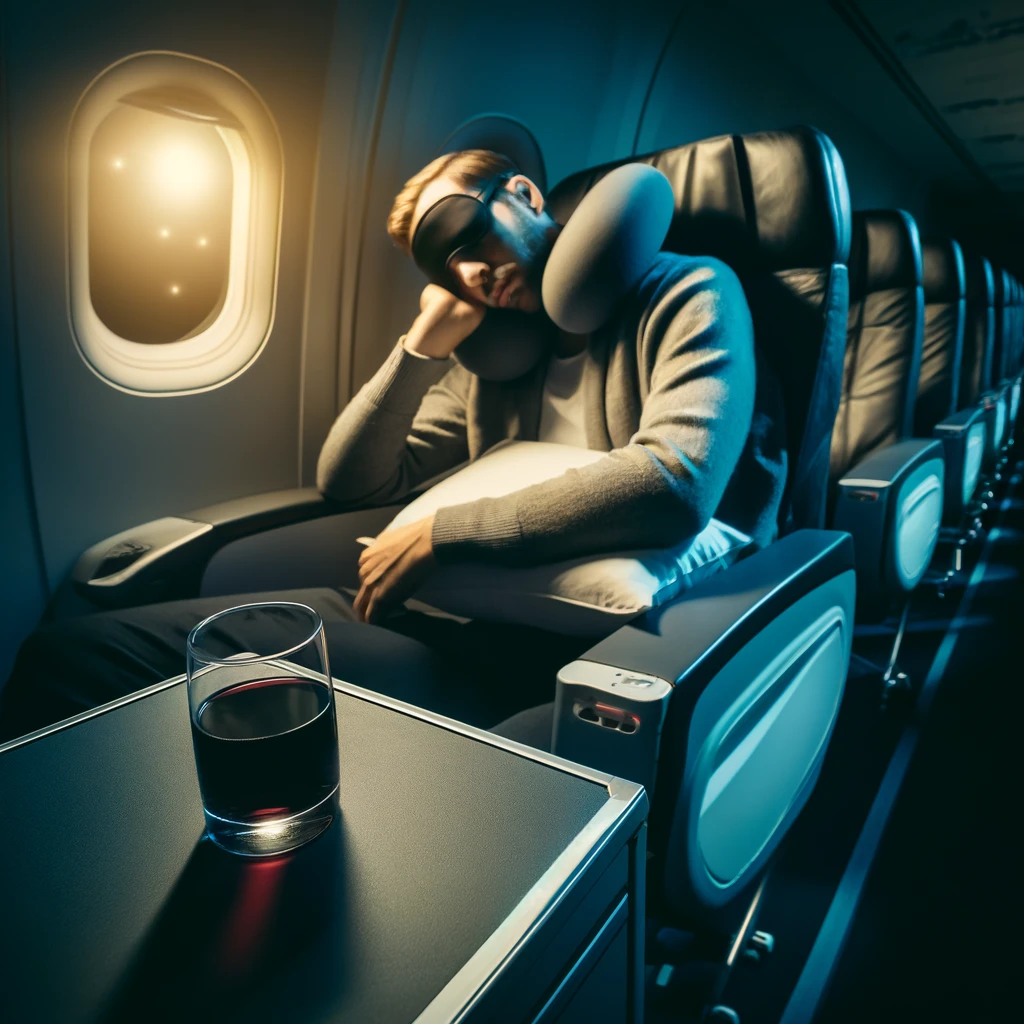Flying can be stressful, and many travellers seek a bit of relaxation with a glass of wine or beer before settling down for a nap. However, drinking alcohol before napping on a flight may not be a good idea. According to recent research, this combination can have adverse effects on your health, both immediately and in the long run.
Airplane cabins are pressurized to simulate an altitude of 8,000 feet (2,438 meters), creating an environment where both air pressure and oxygen levels are lower than what we experience on the ground. Adding alcohol consumption into this mix can lead to a significant drop in oxygen saturation in the blood, as highlighted by a study published in the journal Thorax.
The Research Findings
Lead study author Dr. Eva-Maria Elmenhorst, a prominent researcher at the DLR Institute of Aerospace Medicine in Cologne, Germany, urges passengers to reconsider drinking alcohol on board. The study conducted involved creating an environment akin to an airplane cabin and observing 48 healthy adults over two nights. The participants experienced two different scenarios: sleeping without alcohol and sleeping after consuming the equivalent of two glasses of wine or beer. The results were telling. Those who drank alcohol before sleep showed reduced oxygen levels and elevated heart rates, indicating increased strain on the cardiovascular system.
The study’s authors note that the combination of alcohol intake and sleeping under low-pressure conditions places considerable stress on the heart, potentially exacerbating symptoms for individuals with pre-existing cardiac or pulmonary conditions. Although the study’s sample size was small, it sets a foundation for further exploration into the relationship between sleep, alcohol, and flight conditions.
Short-Term and Long-Term Health Impacts
Many passengers might use alcohol to help them fall asleep in the often uncomfortable confines of an airplane cabin. However, this strategy may backfire. While alcohol can indeed make you feel sleepy, the quality of sleep it induces is far from ideal. The study found that REM sleep—a critical stage for memory consolidation and brain function—was significantly reduced in participants who consumed alcohol before sleeping. Dr. Andrew Freeman, director of cardiovascular prevention and wellness at National Jewish Health in Denver, points out that alcohol, while sedative, disrupts sleep patterns, leading to fragmented and poor-quality sleep.
Dr. Shalini Paruthi, an expert from the American Academy of Sleep Medicine, further explains that alcohol-induced sleep tends to be interrupted, causing people to wake up more frequently throughout the night. This can result in shorter overall sleep duration and poorer rest quality.
Precautionary Measures
For those considering the combination of alcohol and sleep aids, extreme caution is advised. Both substances are depressants and can significantly amplify each other’s sedative effects, leading to potentially dangerous situations. Dr. Freeman emphasizes that mixing sleep aids with alcohol is a major concern, often leading to medical emergencies during flights.
Tips for Better Rest on Flights
To ensure a restful flight experience without the negative effects of alcohol, consider aligning your flight schedule with your natural sleep cycles. This may involve choosing flights that coincide with your regular sleep patterns, allowing you to either complete your sleep upon landing or start your day refreshed. Avoid relying on stimulants like coffee or energy drinks, which can disrupt your natural rhythms.
Staying hydrated is crucial, as the dry cabin environment can quickly lead to dehydration. Water is the best choice to maintain hydration levels. Additionally, try to avoid the typical salty and greasy foods offered on flights. Instead, opt for lighter, plant-based options or bring your own healthy snacks.
Exercise is another beneficial factor. Walking around the airport and using stairs instead of escalators can help prepare your body for rest. On longer flights, make it a point to get up and move around periodically to stimulate circulation.
Lastly, minimise screen time before and during your nap. The blue light emitted from electronic devices can interfere with your sleep patterns. Using noise-cancelling headphones and avoiding screens can create a more conducive environment for sleep.
By following these tips, you can help ensure that you arrive at your destination feeling refreshed and ready for your adventures, without compromising your health in the process.

